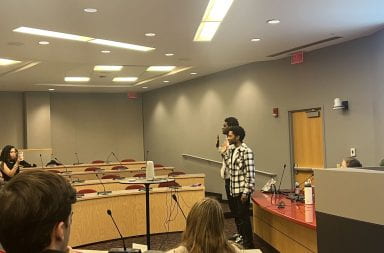The misdirection play didn’t work for Ohio State’s offense Monday, and ESPN Inc. said that kind of “playbook” won’t work in court either.
In ESPN’s lawsuit against OSU over several public records involving the recent scandal in the football program, one attorney said that despite actions now, the university violated Ohio public record laws.
John Greiner, attorney for ESPN, filed a reply brief on Dec. 23, that reiterated the stance of the major sporting news network on how OSU and its officials acted in its public records requests.
“Because OSU cannot justify its violations of the Ohio Public Records Act or FERPA, this court should grant ESPN’s petition for a Writ of Mandamus and award 100 percent of its attorney fees,” Greiner wrote.
FERPA, or the Family and Educational Rights and Privacy Act, is a law used to protect the privacy of students. ESPN said OSU wrongfully cited FERPA as a reason for withholding information.
Greiner said actions taken after the fact do not deter from the original violations, which ESPN states occurred in April and May of 2011.
“OSU can offer this court all of the misdirection in its playbook, but it cannot avoid the inconvenient truth that it violated the Public Records Act in its response to ESPN’s requests,” Greiner wrote.
ESPN states that it is the role of the university to assist in making all public records accessible, and in the university’s responses, Greiner and ESPN state that there is no information about how to proceed in its request.
“As a public records requester, ESPN is not required to take on the role of a biblical scholar and derive the hidden meaning in a plainly worded message from a public body,” Greiner wrote. “This court must judge whether OSU complied with the Public Records Act based on its only response. And that response violated the Public Records Act.”
Greiner said that the court must send a message.
“This court should join with courts from around the country in sending an unmistakable message to collegiate athletic departments — you cannot hide your misdeeds behind FERPA and you must honor your obligations under the PRA,” Greiner wrote.
The Ohio Supreme Court has not yet set a date for oral arguments.
OSU has yet to file a response to the court.
This case is part of the aftermath of the “Tattoo-gate” scandal that led to the forced resignation of former head coach Jim Tressel. Six OSU football players were found to have sold memorabilia for tattoos and other impermissible benefits.
It was later found that Tressel knew of the violations and knowingly played ineligible players for the entire season.


